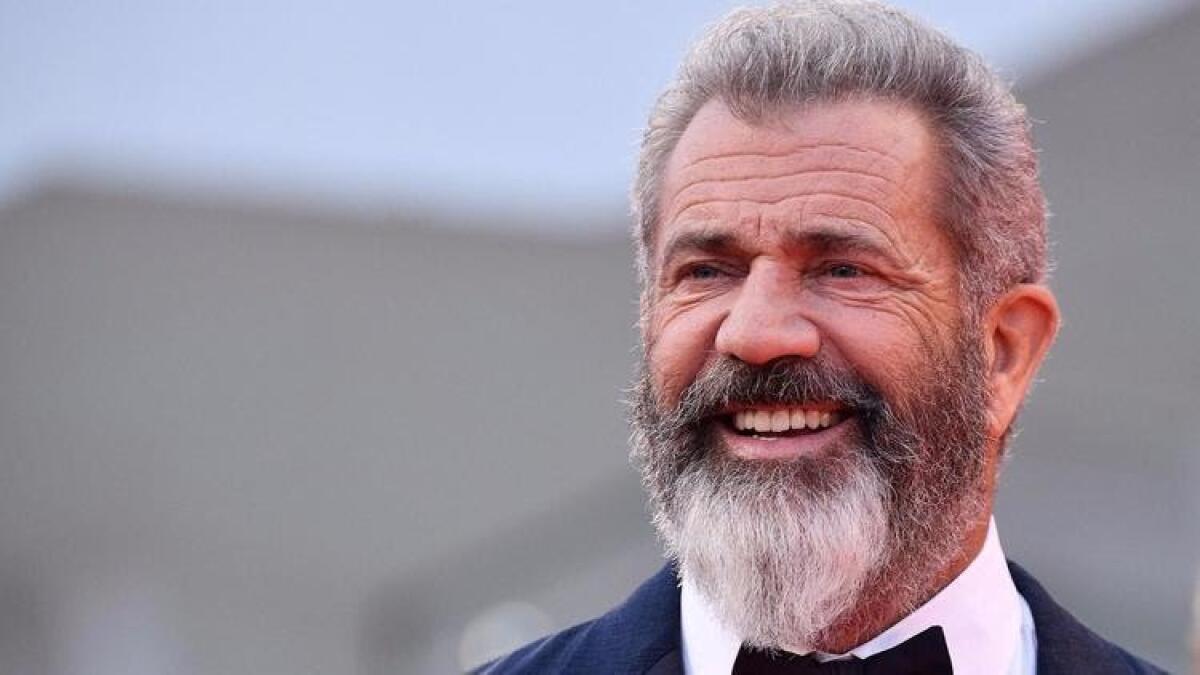Mel Gibson’s lawsuit over ‘Professor and the Madman’ deepens, as director says producer defamed him in comments to L.A. Times

The legal battle over the Mel Gibson movie “The Professor and the Madman” has grown messier, with a new complaint filed Tuesday by director Farhad Safinia alleging copyright infringement and defamation against Voltage Pictures, one of the production companies behind the independently financed movie.
Safinia directed and wrote the screenplay for “Professor,” a period drama that tells the story of Scottish academic James Murray (Gibson), who set about to compile the Oxford English Dictionary with the help of Dr. William Chester Minor (Sean Penn), an American Civil War veteran who was in an asylum for the criminally insane.
In a federal court lawsuit filed in Los Angeles, Safinia is arguing that Voltage defamed him by issuing a statement to the Los Angeles Times in August in which Voltage said Gibson and Safinia “failed to live up to their professional and contractual responsibilities.”
The movie is a passion project for Gibson, who acquired the rights to the original nonfiction book by Simon Winchester nearly two decades ago.
Gibson is producing the picture through his company Icon, but isn’t directing it. Filming took place last fall in Dublin for several weeks, but the project has fallen apart in a rancorous dispute that has pitted Icon and Safinia against Los Angeles-based Voltage, headed by producer Nicolas Chartier.
Icon claimed in a suit filed in Los Angeles Superior Court this summer that Voltage denied the filmmakers permission to film crucial scenes on location in Oxford, England. As a result, Icon said, the movie remains unfinished.
Nevertheless, Icon said Voltage has attempted to find a distributor for a version of the movie that hasn’t been approved by Gibson, who has the last word on the shape of the film as well as approval rights for changes to the screenplay.
Safinia, the director, has formally jumped into the dispute, arguing in his complaint Tuesday that Voltage has committed copyright infringement by trying to sell an “unauthorized derivative work” from his copyrighted screenplay.
Icon’s original complaint alleged that Voltage has attempted to sell its version of the movie and has screened the movie for prospective buyers, in violation of their agreement.
Safinia said that he not only lived up to his professional responsibilities on the film, but that no contract was ever finalized or signed for his services on the project.
Voltage filed a response to the original complaint from Icon on Tuesday, dismissing the allegations on the grounds that Icon hasn’t spelled out the harm it has experienced.
Safinia previously worked with Gibson as a screenwriter on his 2006 movie “Apocalypto.” The new movie would have been Safinia’s first as a feature film director.
Safinia is asking the court to impound the film negative and other items related to the movie. He is also asking the court for an injunction against subsequent screenings and attempts to sell the film.
More to Read
Inside the business of entertainment
The Wide Shot brings you news, analysis and insights on everything from streaming wars to production — and what it all means for the future.
You may occasionally receive promotional content from the Los Angeles Times.











